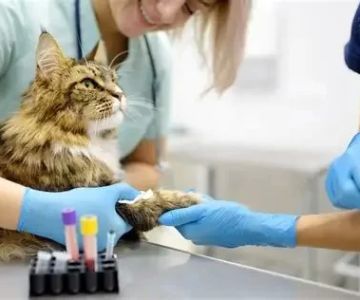- Understanding Fleas and Their Impact on Puppies
- Why Choose Natural Flea Treatments for Puppies?
- Effective Natural Flea Treatments for Puppies
- Integrating Natural Remedies into Your Puppy’s Care Routine
- When to Consult Hidden Brook Veterinary for Flea Issues
1. Understanding Fleas and Their Impact on Puppies
Fleas are tiny parasites that feed on the blood of animals, and puppies are particularly vulnerable to flea infestations due to their small size and developing immune systems. These pests not only cause intense itching and discomfort but can also lead to more serious health issues such as anemia or allergic reactions.
A client at Hidden Brook Veterinary once shared a story about their new puppy, Luna, who suffered from severe itching and hair loss caused by fleas. Thanks to early intervention with natural flea treatments, Luna quickly regained her health and comfort, highlighting the importance of timely care.
1.1 How Fleas Affect Puppies Differently
Because puppies have more delicate skin and less developed immune defenses, flea bites can cause greater irritation and even skin infections. Understanding this vulnerability helps in choosing the safest flea control methods.
1.2 Signs Your Puppy Might Have Fleas
Common signs include scratching, biting at the skin, redness, small scabs, and the presence of flea dirt (tiny black specks) on the coat. Detecting fleas early is key to preventing infestation.
2. Why Choose Natural Flea Treatments for Puppies?
Puppies are sensitive to many chemical flea treatments, which can sometimes cause adverse reactions. Natural flea treatments offer a safer alternative that minimizes risks while effectively repelling or eliminating fleas.
Many pet owners appreciate natural remedies because they avoid harsh toxins and support overall skin health. Hidden Brook Veterinary supports these safer choices and can guide owners in selecting appropriate natural flea control options.
2.1 Safety Considerations
Natural treatments avoid chemicals like permethrin, which can be toxic to puppies, especially those under 12 weeks old. Using gentle, plant-based ingredients reduces the chance of allergic reactions or skin irritation.
2.2 Environmental Benefits
Organic flea treatments also tend to be eco-friendly, reducing chemical runoff and pollution, making them a responsible choice for both pets and the planet.
3. Effective Natural Flea Treatments for Puppies
Several natural flea treatments have proven effective in managing flea infestations on puppies. These range from topical solutions to environmental controls that target fleas in your home.
3.1 Essential Oils and Herbal Remedies
Lavender, cedarwood, and eucalyptus oils have flea-repellent properties but must be used cautiously and diluted properly to avoid harming puppies. Herbal shampoos containing neem or chamomile can soothe irritated skin while combating fleas.
3.2 Diatomaceous Earth
Diatomaceous earth is a natural powder made from fossilized algae that damages fleas’ exoskeletons, leading to dehydration and death. Sprinkling food-grade diatomaceous earth in your puppy’s bedding and living areas helps reduce flea populations safely.
3.3 Apple Cider Vinegar
Apple cider vinegar diluted with water can be sprayed lightly onto your puppy’s coat to deter fleas. Its acidic nature disrupts flea survival but should be tested on a small patch of skin first to ensure no irritation.
3.4 Regular Grooming and Baths
Routine combing with a fine-toothed flea comb removes fleas and flea dirt physically. Natural flea shampoos provide gentle cleansing without harsh chemicals, making baths a valuable part of natural flea control.
4. Integrating Natural Remedies into Your Puppy’s Care Routine
Consistency is vital when using natural flea treatments. Combining topical remedies with home cleaning and regular grooming creates an environment hostile to fleas, breaking their life cycle effectively.
A Hidden Brook Veterinary client found that combining herbal sprays with weekly combing and washing the puppy’s bedding drastically reduced flea presence, showcasing how a holistic approach can succeed.
4.1 Cleaning Your Puppy’s Environment
Vacuuming carpets, washing bedding in hot water, and maintaining a clean living space prevent flea eggs and larvae from thriving.
4.2 Monitoring and Adjusting Treatments
Observe your puppy closely for any signs of skin sensitivity or recurring fleas, and adjust treatment plans accordingly. Regular consultation with veterinary professionals ensures your approach remains safe and effective.
5. When to Consult Hidden Brook Veterinary for Flea Issues
If flea infestations persist despite natural treatments or if your puppy shows signs of severe itching, skin infection, or anemia, professional veterinary care is essential. Hidden Brook Veterinary offers expert diagnosis, advanced treatment options, and personalized advice to protect your puppy’s health.
Early intervention can prevent complications and provide peace of mind to concerned pet owners.












